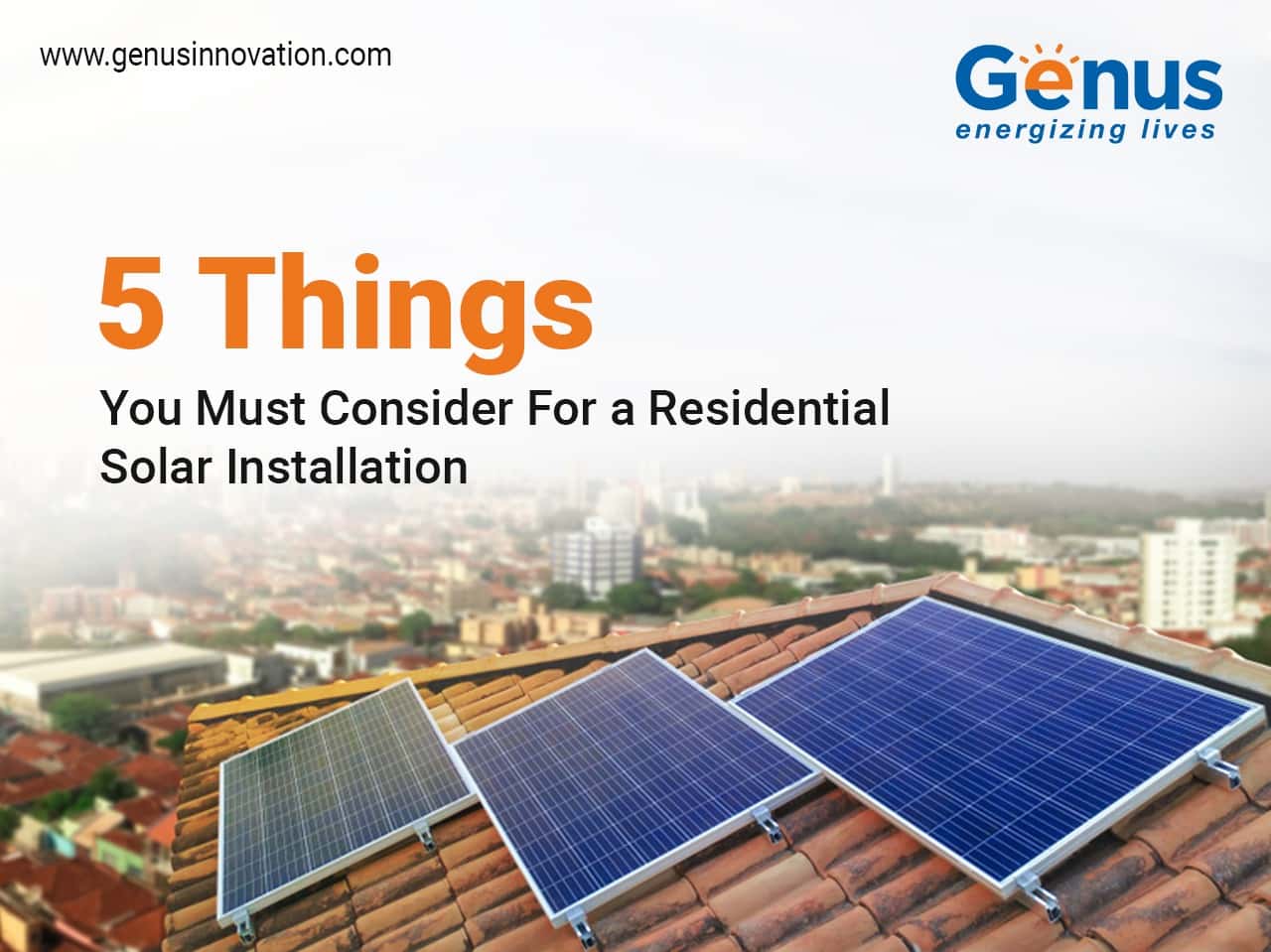Residential solar power is becoming increasingly popular, and for good reason. From significant energy savings to contributing to a greener future, solar energy offers numerous benefits to homeowners. In fact, its adoption has surged by over 11 times in just the past five years. While switching to solar has become more accessible, there are several key factors you should consider to ensure your installation is both efficient and cost-effective.
In this article, we’ll explore these important considerations—from choosing the right type of solar panels to understanding the best placement and financing options. Whether you're new to solar or looking to upgrade, this guide will help you make an informed decision.

### 5 Key Factors to Consider Before Installing Residential Solar
#### 1. Roof Condition and Layout
Before installing solar panels, it's crucial to assess the condition of your roof. A strong, well-maintained roof is essential to support the weight and longevity of the panels. If your roof needs repairs, address those first to avoid future complications. Additionally, consider the orientation, material, and available space on your roof. South- or southwest-facing roofs typically offer the best sunlight exposure, maximizing energy production.
#### 2. Choosing the Right Type of Solar Panels
There are three main types of solar panels: monocrystalline, polycrystalline, and thin-film. Each has its own advantages in terms of efficiency, cost, and aesthetics. Monocrystalline panels are known for their high efficiency and sleek design, while polycrystalline panels offer a more budget-friendly option. Thin-film panels are flexible but generally less efficient. At Genus, we offer premium solar products that combine durability, performance, and value.
#### 3. Optimal Location for Maximum Sunlight
The location of your home plays a vital role in the effectiveness of your solar system. Ideally, your panels should be placed where they receive the most direct sunlight throughout the day. While solar panels can still function on cloudy days, obstructions like tall buildings or trees can significantly reduce output. If your home isn’t ideal, you may need to install additional panels or consider alternative setups.
#### 4. Financing Your Solar Installation
Solar installations can require a significant upfront investment. However, there are various financing options available, including loans, leases, and power purchase agreements. You can also opt for a hybrid system that combines solar with grid power to reduce initial costs. At Genus, we provide affordable solar inverters and batteries that enhance the efficiency and reliability of your system.
#### 5. Calculating Your Break-Even Point
One of the biggest draws of solar energy is the long-term savings. However, it’s important to calculate how long it will take to recoup your initial investment. This depends on factors such as system size, local electricity rates, and panel efficiency. A well-designed system can break even within 3–4 years, offering substantial savings over time.
### Wrapping Up
By considering these five key factors, you can make a smart and informed decision when installing residential solar. Transitioning to renewable energy not only helps the environment but also leads to long-term financial benefits. At Genus Innovation, we offer high-quality solar products and solutions to support your journey toward a sustainable and cost-effective lifestyle. Connect with us today to learn more and start your solar journey.
Bag Filter
Bag Filter,Bag Filter With Carbon Steel,Duplex Steel Quick Opening Multi-Bag Filter,Stainless Steel Quick Opening Multi-Bag Filter
Wuxi Zerru Technology Co., Ltd , https://www.zerruflow.com